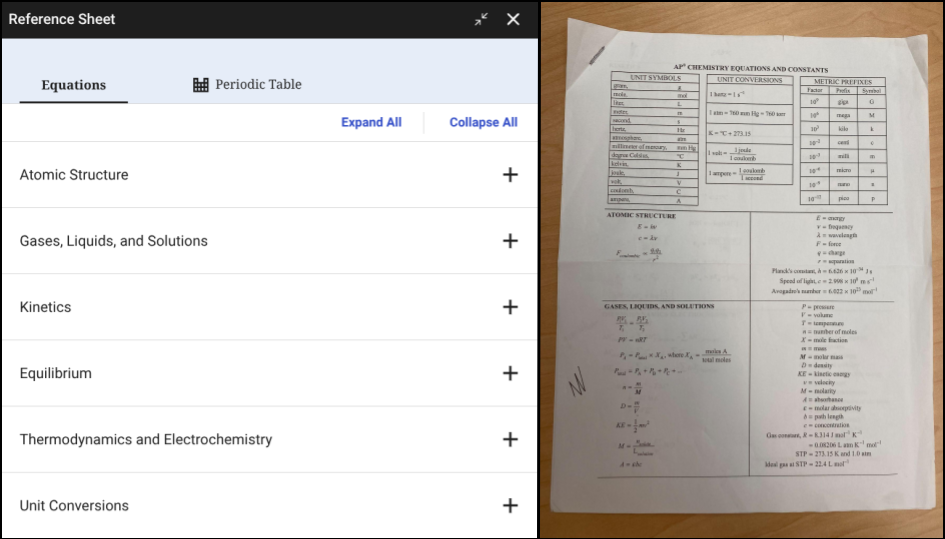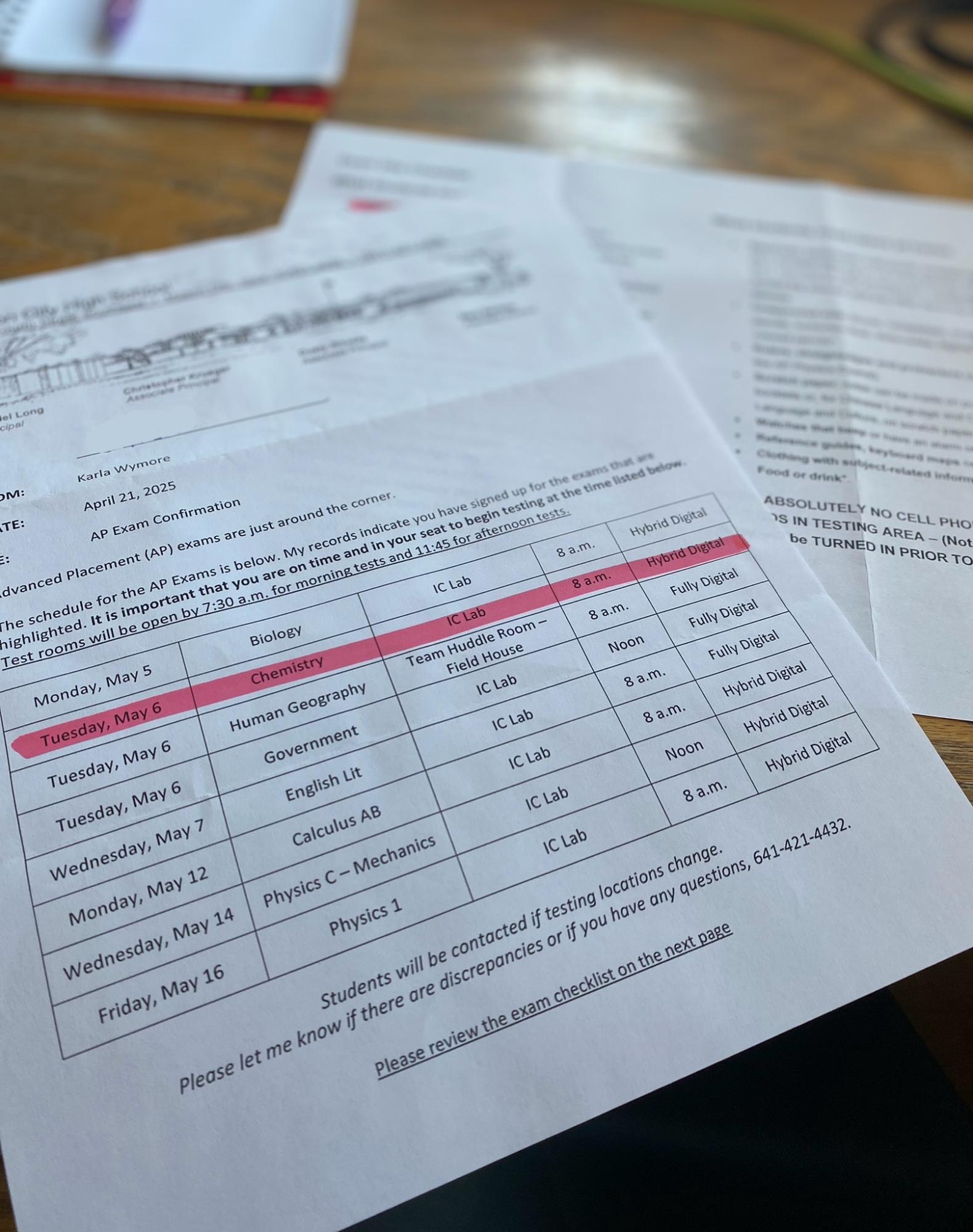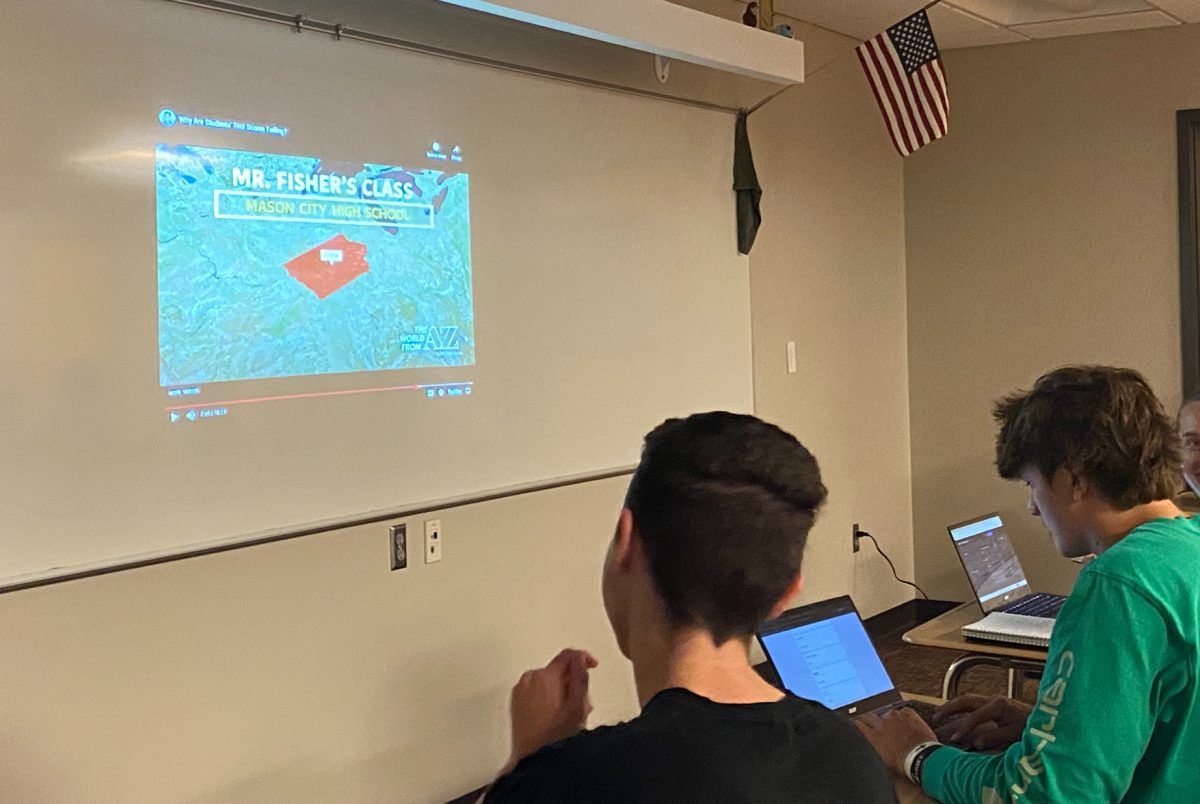In the interest of full disclosure, Mr. Shannon Dykstra is the father of Riverhawk Press staff writer Elise Dykstra. Mr. Dykstra is the only teacher at MCHS who teaches AP Literature.
During the summer of 2024, the Advanced Placement/College Board announced a surprise move to change all AP testing to fully digital or hybrid digital testing. This accelerated part of a 10-year plan to digitize AP testing.
According to a release by AP, the change comes as a reaction to a recent increase in compromised test materials. “Unfortunately, this year [2024], we saw a rise in bad actors compromising AP Exam content for financial gain,” said the release.
The tests are now administered to students in one of two formats: digital or digital hybrid. Fully digital testing has multiple choice questions and free response questions (typed) on AP’s chosen testing application, Bluebook. For tests in the hybrid format, multiple choice questions are answered online while free response questions are given onscreen with answers to be written down in a testing booklet.
This can result in a variety of adaptations for different tests. Students taking the AP Chemistry exam, for instance, receive a physical periodic table for testing but must access their list of reference equations from a drop-down menu on Bluebook.
AP Chemistry teacher Adam Callanan worries that overall scores would fall for AP Chem students due to digitizing the equation sheet, a testing essential.
“The people that have practiced out of the group, you’ve probably sat somewhere and you’ve had an equation sheet sitting there, probably had a calculator sitting on your desk,” Callanan said before the test. “On Tuesday it’ll be different because you won’t have an equation sheet sitting there. You’ll have to use your computer to find that.”
The AP Chemistry students took the exam last Tuesday morning. Junior Kaitlyn Thangaraj, who took the test, said, “Honestly, I didn’t notice a huge difference. I feel like with timing and everything it was pretty much the same.”
However, she did note that the digital equation sheet made testing more difficult. “I barely used it at all just because it was so hard to go through it and find exactly what the equations were,” she said.

AP Literature teacher Shannon Dykstra is concerned about the adjustment for his students from paper reading with note-taking to digital reading. “The nature of our exam is one where most of our practice and most of the work done with literature is done with pencil in hand and to be able to write on a text,” he said.
“I was also frustrated because I know that kids read differently on a screen,” said Dykstra. “Scientifically speaking, they’re scanning more. And the deep reading that maybe they’re used to is typically in print and not on a screen.”
According to an article published in Psychology Today, recent research suggests that students understand texts up to eight times better when reading off of physical paper or books.
The article also noted that the physical “feeling” of holding a book or using a pencil or highlighter helps the brain to synthesize information. Viewing the physical location of words on a page as well as the sensation of turning pages also helps the brain create an “index,” mapping where information we read comes from.
Having to scroll as you read, then, prevents your brain from “indexing” the information, making it more difficult to remember on a short-term basis, which is essential in an AP exam.
While Dykstra has been working with students to prepare to read digital texts during the exam, he says it’s not an easy change for students to make.
“I would definitely say it will require a shift in their practice,” he said. “When you have 17, 18 years of practice reading one way off a screen and another way in print, you don’t just flip a switch overnight.”
Despite concerns about reading comprehension and free response questions, students agree that the multiple choice section was more streamlined and easy to use than the paper-pencil bubble sheet format.
“There wasn’t really flipping between sheets and bubbling in answers,” said Thangaraj. “It was easy to mark down which ones I needed to go back [to].”
“The online access to the test made it less time-consuming,” agreed senior Joseline Juarez, who took the AP Government, AP Biology, and AP Literature exams. “I did so much better due to those features.”
Callanan also added that because present-day students are more familiar with online testing and work, they might find digital testing easier.
“Grade levels coming up are probably used to most [exams] on a Chromebook, right?” Callanan said. “So I guess that might be a positive. They’re kind of used to that now.”
College Board provided students with practice tests using the format they would experience on exam day, along with instructional videos explaining the features of the testing application. “Once I looked up videos and resources about the format of the online tests, I was completely prepared,” said Juarez.







